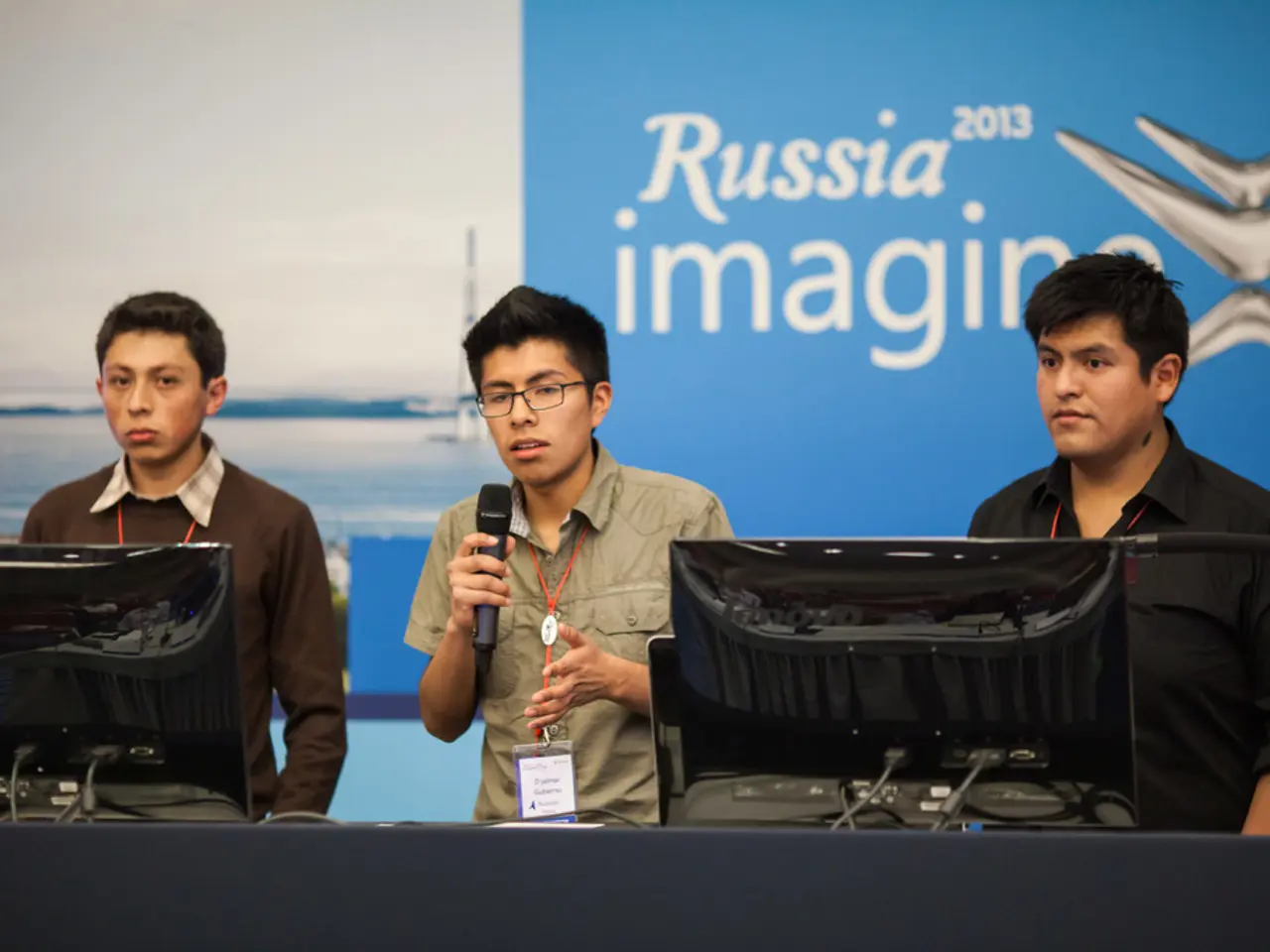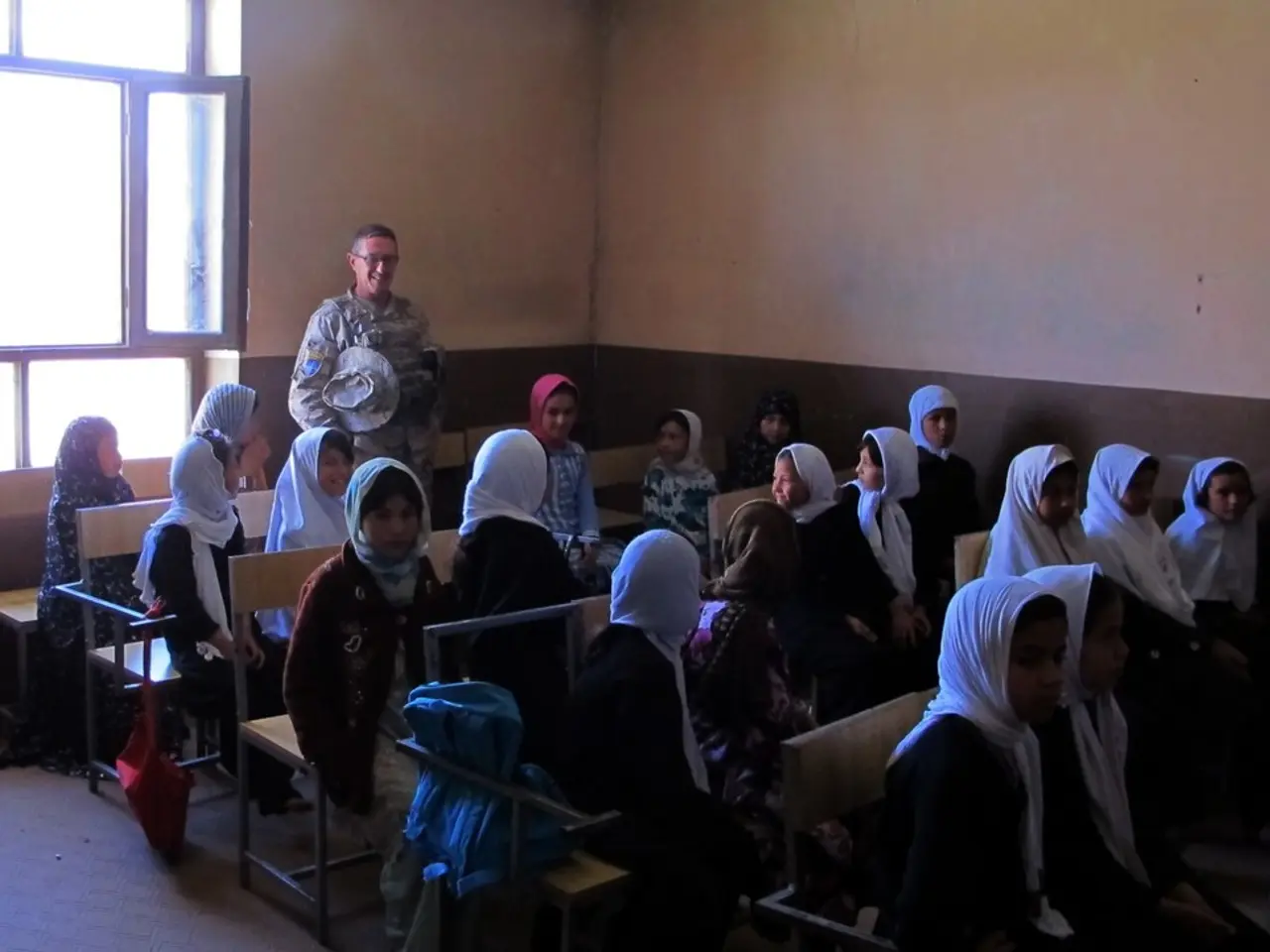Job market requirements and student preferences often differ in Latvia
In Latvia, the economy is facing a concern that the Ministry of Education and Science is addressing: a lack of interest among young people in basic sciences such as physics and chemistry [1]. This misalignment between education and labor market needs is particularly apparent in the field of Science, Technology, Engineering, and Mathematics (STEM).
High school graduates in Latvia predominantly opt for fields like medicine, psychology, law, and communication sciences. Although two computer science programs rank among the most popular STEM choices, overall STEM enrolment is still lower compared to social sciences [1].
The Latvian Ministry of Economics, on the other hand, has a positive outlook for medical professions due to demand but expresses concern about the insufficient representation of STEM graduates relative to labor market needs [1]. This concern is further compounded by challenges in innovation and R&D, as Latvia's innovative enterprise employment and digital skills performance remain below the EU average [2].
Public and private R&D investments are limited, which in turn impacts the growth of STEM-related sectors, leading to a demand for highly skilled STEM graduates [2]. To address this issue, initiatives like the "Stronger Work-Based Learning for Improving Vocational Education and Training" programme (2025-2029) aim to enhance vocational training, including STEM-related skills development, to better align education with industry needs [3].
Moreover, with Latvia scoring low among EU countries on advanced digital skills, there is ongoing prioritization of digital upskilling and infrastructure investment under national and EU-supported plans to bridge these gaps [2].
The University of Latvia (LU) and Riga Stradiņš University (RSU) have the highest number of applicants for medical-related study programmes this year, with over 2000 applications. However, construction and various civil engineering professions, including electrical engineering, are not among the top ten chosen study programmes [1].
This imbalance is further evident in the surplus of students in business management and marketing programmes, which exceed the needs in terms of volume, creating an imbalance in the labour market [1]. The Ministry of Education and Science is concerned about this imbalance, particularly in relation to the number of students choosing business management and marketing programmes and the availability of jobs in these fields [1].
In summary, the Latvian STEM education system currently faces challenges in attracting adequate student interest to fulfill labor market demands, compounded by limited R&D investments and digital skills shortages. However, targeted reforms and vocational education strengthening efforts are underway to improve this alignment over the coming years [1][2][3].
References:
[1] Ministry of Education and Science of the Republic of Latvia. (2021). Annual Report 2020. Retrieved from https://www.vmn.gov.lv/en/news/annual-report-2020
[2] European Commission. (2020). Digital Economy and Society Index (DESI) 2020 Country Report - Latvia. Retrieved from https://ec.europa.eu/info/publications/digital-economy-and-society-index-desi-2020-country-report-latvia_en
[3] European Commission. (2021). European Skills Agenda for sustainable competitiveness, social fairness and resilience: Council conclusions. Retrieved from https://www.consilium.europa.eu/en/press/press-releases/2021/06/24/european-skills-agenda-for-sustainable-competitiveness-social-fairness-and-resilience-council-conclusions/
Personal growth and learning opportunities in STEM fields are crucial for bridging the misalignment between education and labor market needs in Latvia, as highlighted by both the Ministry of Education and Science and the Ministry of Economics. The lack of interest among young people in basic sciences like physics and chemistry, along with insufficient representation of STEM graduates, have raised concerns about innovation, R&D, and the growth of STEM-related sectors, necessitating initiatives like the "Stronger Work-Based Learning for Improving Vocational Education and Training" programme to reinforce STEM-related skills development and better align education with industry needs.




